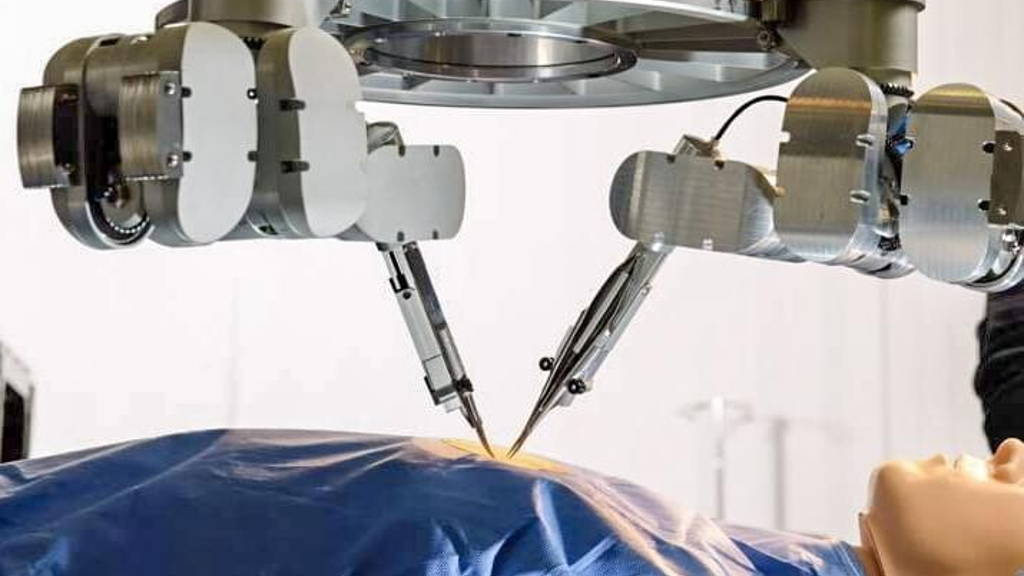Lymphedema is a chronic condition in which fluid builds up and causes swelling. This serious disorder commonly occurs as a side effect of breast cancer treatment. A relatively new and potentially much better treatment for lymphedema is a super-microsurgery in which lymphatic vessels are connected to blood vessels to restore the flow of lymphatic fluid and alleviate the swelling.
This intervention is, however, particularly difficult and stressful to perform given the extreme precision required from the surgeon. Worldwide, only a few surgeons are capable of carrying out this surgical technique by hand. Surgeons in Maastricht found the solution in Eindhoven, a digital innovation hub.
Hand movements converted
The surgical robot of Microsure, a spin-off of Eindhoven University of Technology and Maastricht UMC+, is controlled by a surgeon whose hand movements are converted into smaller, more precise movements which then are performed on the patient by a set of ‘robot hands’. The device also stabilizes any tremor in the surgeon’s movements, which makes the procedure more controlled and thus easier to perform.The Microsure robot is expected to enhance a large number of microsurgical procedures and enable new interventions that are currently impossible to perform by hand. This will lead to better patient outcome and lower healthcare costs due to a reduced rate of complication and less post-operative treatment.
Operating on vessels of every size
Shan Shan Qiu Shoa, plastic surgeon at Maastricht UMC+, states the Microsure enables surgeons to be very precise in their movements during procedures that need a surgical microscope. The robot allows operating on minuscule lymph vessels and blood vessels with more ease, while getting better results for these complex and fatiguing interventions. “Besides it is very convenient that, within microsurgery, we can operate on vessels of every size with this robot. Most importantly, of course, this is good news for the patients concerned.”Raimondo Cau, the technical brain of Microsure, says that as a next step, “we aim to assist surgeons during other types of complex microsurgical procedures like tissue reconstructions after removal of a tumor. Using our device they will be able to perform surgery with better precision and fewer complications.”

